Ever been at a loud concert and thought about your ears? Noise-cancelling technology exists. This article shows how it helps keep ears safe. Stay tuned; you’ll want to hear this.
Key Takeaways
Noise cancelling technology works by creating sound waves that cancel out background noise. This includes two types: Active Noise Cancelling (ANC) for electronic cancellation and passive models that block noise with physical barriers.
Using noise cancelling headphones can protect your hearing. They reduce the need to turn up the volume in noisy environments, helping prevent damage from loud sounds. The 60/60 rule is a smart guideline to follow with these gadgets.
There are different devices for specific needs: ANC headphones are great for everyday listening without background distractions, while custom hearing protection suits activities requiring awareness of surroundings.
Besides using tech-based solutions like ANC earbuds or custom earmuffs, other ways to protect your ears include following the 60/60 rule, wearing ear muffs in loud settings, using protective earplugs at concerts, and limiting time spent on devices that produce sound.
Regular check-ups can catch early signs of hearing loss. Combining technology like noise-cancelling headphones with healthy listening habits ensures better protection against damaging noises.
Table of Contents
Understanding Noise Cancelling Technology
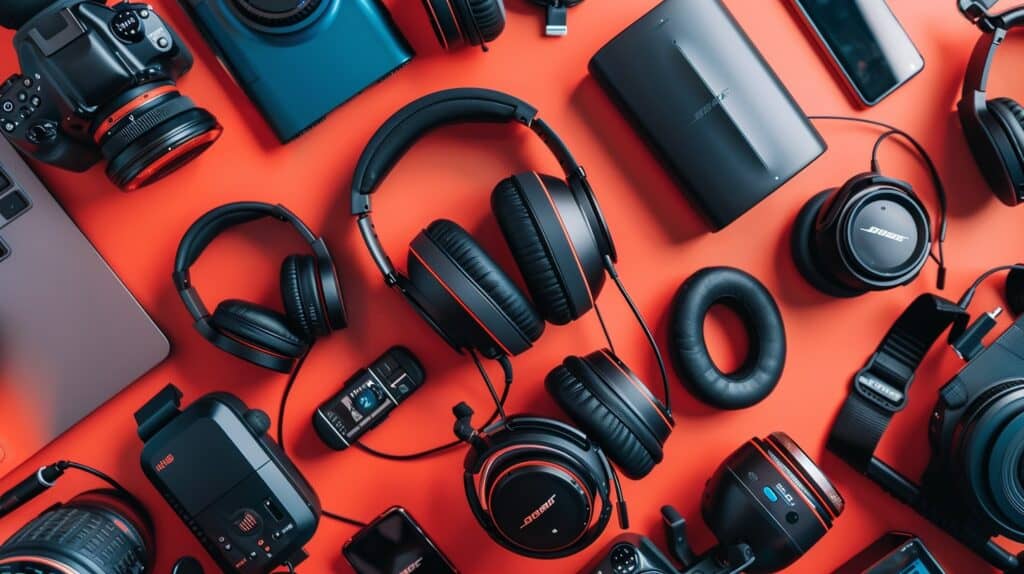
Noise cancelling technology is like a superhero for your ears. It fights off unwanted sounds, so you can listen in peace. This tech uses smart microphones and speakers to create a quiet zone around you.
Think of it as invisible earmuffs that block the noise before it hits your eardrums. If you’re curious about what to expect from an advanced hearing test, understanding how this technology works might give you some clues!
How Does Noise Cancelling Work
Active noise cancelling headphones do a neat trick. They use little microphones to listen to what’s happening around you. Then, they take this outside racket and flip it upside down, creating a sound wave that’s the exact opposite.
Imagine your noisy neighbor playing loud music, and you play the same tune but flipped so you can’t hear theirs anymore. That’s how these headphones give peace by cancelling out noises.
Yes and no. Noise-canceling headphones can somewhat protect your ears, but they aren’t perfect. Passive noise-canceling headphones protect your hearing because they seal your ears from loud external sounds, particularly transient ones such as gunshots or explosions.
Can Noise-Canceling Headphones Stop Hearing Loss? What to Know
On the other hand, passive noise cancelling gadgets block out sound just by their design and what they’re made of. Think of them like super earplugs or those big earmuffs you wear during winter but tuned for silence instead of warmth.
They don’t need batteries or fancy electronics; they simply create a barrier between your ears and whatever racket is trying to invade them, whether it’s loud chatter in cafés or the hum of an airplane engine high up in the sky.
What Is ANC on Headphones?
ANC on headphones stands for Active Noise Control. Picture having a tiny superhero in your earbuds that fights off unwanted noise. These headphones have small microphones that pick up outside sounds.
Then, like magic, they create opposite sound waves to cancel the first ones out. This means you hear less of those annoying low rumbles from engines or air conditioners.
But it’s not perfect for all sounds. Sudden loud noises like a car horn or someone shouting might still get through because ANC is best at handling steady, low-frequency buzzes and drones.
Still, this tech makes listening safer by cutting down on how much you crank up the volume to beat back background clamor. So next time you plug into your ANC earpieces before heading out or settling in with your tablet, know they’re not just playing your favorite tunes—they’re also guarding your ears against unnecessary racket.
Types of Noise Cancelling Devices
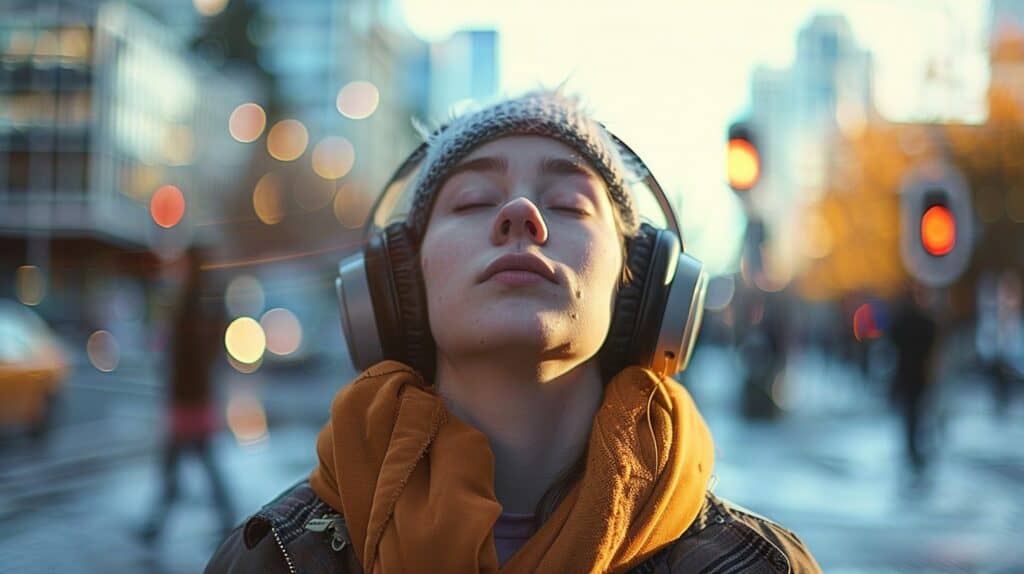
Noise cancelling devices come in two main flavors: active and passive. They’re like superheroes for your ears, fighting off unwanted noise to prevent further hearing damage.
Active Noise Cancelling Earbuds
Active Noise Cancelling (ANC) earbuds have tiny mics. These mics listen to background noise. Then, the earbuds create a sound that’s the opposite of this noise. This cancels out unwanted sounds.
People use ANC earbuds on planes or in noisy places to hear music better without turning up the volume.
Using these earbuds can help keep your ears safe. You won’t need to blast your music to cover up annoying noises around you. Following the 60/60 rule with these gadgets is smart too.
It means not going over 60% volume for more than 60 minutes at a time. This helps prevent hearing loss from loud noises or wearing headphones for too long.
Passive Noise Cancelling Earbuds
Passive noise cancelling earbuds use their shape and the materials they’re made of to keep out unwanted sound. They don’t need batteries or electronics to do their job. This type of earbud fits snuggly in your ears, creating a sealed space that keeps a lot of outside noise from getting in.
Think of them like high-quality foam that molds to block the gap under your door, but for your ears.
Some models have a closed-back design that helps stop outside noises from ruining your music and keeps what you’re listening to from leaking out. Imagine sitting next to someone but not hearing their music at all—that’s the power of a good pair of these earbuds.
They’re perfect for anyone looking for peace without needing fancy tech tricks—like turning a busy café into your quiet zone with just the push of an earbud into place.
Do Noise Cancelling Headphones Protect Hearing?
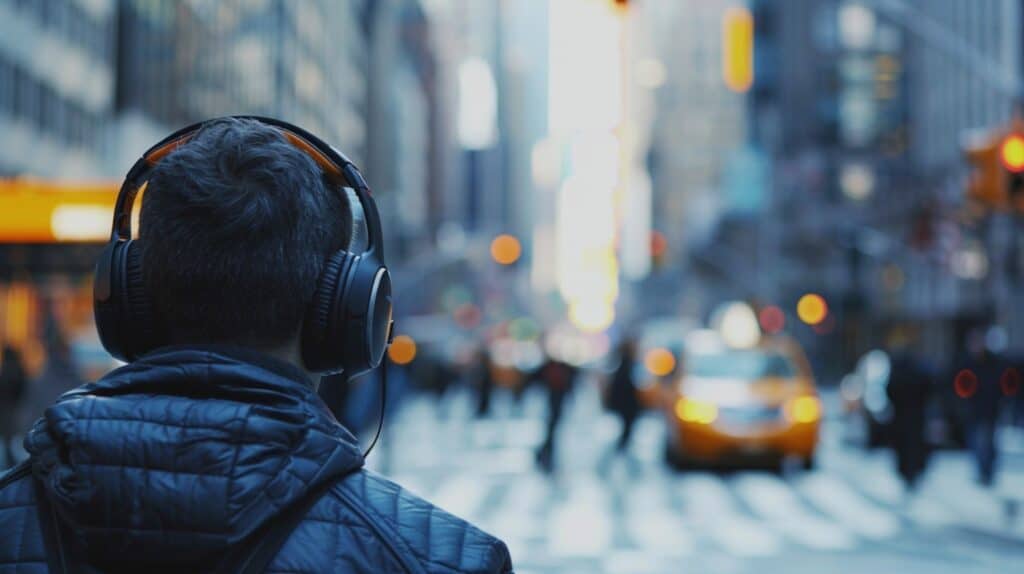
Noise cancelling headphones do a solid job at keeping your ears safe. They lower the need to crank up the volume, battling against loud background sounds. This means you’re less likely to blast your music in noisy places, which is a big win for your hearing.
ANC technology shines by tuning out low hums like airplane engines or office buzz. But it might miss sharp noises like sirens or gunshots. Either way, having these ear defenders on gives you better chances at identifying hearing problems early and keeps noise-induced hearing loss at bay.
Both active noise-cancelling and passive models create a bubble of quiet around you. This quiet zone helps keep harmful noises out, letting you enjoy tunes at safer volumes. Think of them as superheroes for your ears – fighting off villains like blaring horns or booming construction without missing a beat.
So yes, using these gadgets can indeed shield your hearing from damage while making sure every beat and note comes through crystal clear.
Comparing Noise Cancelling Headphones and Custom Hearing Protection
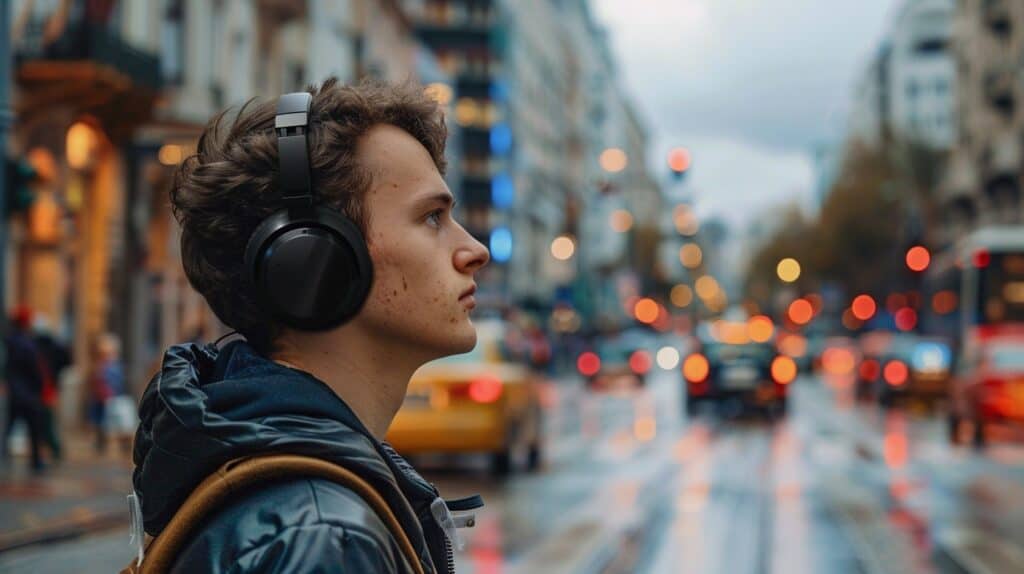
Let’s dive into how noise-cancelling headphones stack up against custom hearing protection. Both have their merits, but choosing the right one depends on your activity and what sounds you’re trying to block out.
| Feature | Noise Cancelling Headphones | Custom Hearing Protection |
|---|---|---|
| Technology Used | Uses microphones to pick up external noises, then creates opposite sound waves to cancel them out. | Relies on the physical design and materials to block out sound. |
| Best For | Everyday use, like listening to music or podcasts without background noise. | Activities needing awareness of surroundings, like shooting or hunting. |
| Portability | Easy to carry and use on the go. | Varies by design, some can be bulky. |
| Price | Can be pricey, depending on the brand and features. | Often more affordable, but can vary based on customization. |
| Custom Fit | Generally one size fits all, with some exceptions. | Designed to fit the user’s ears perfectly. |
| Protection Level | Good at reducing constant low-level noise. | Excellent at blocking out high-decibel sounds. |
Choosing between the two isn’t just about stopping noise. It’s about what kind of silence you’re after. Want to enjoy your tunes without the buzz of daily life? Go for noise-cancelling headphones. Need to keep your hearing sharp while still blocking harmful sounds? Custom hearing protection is your friend. It’s like choosing between a sports car and an off-roader. Both get you places, but the ride is quite different.
Other Methods to Protect Your Hearing
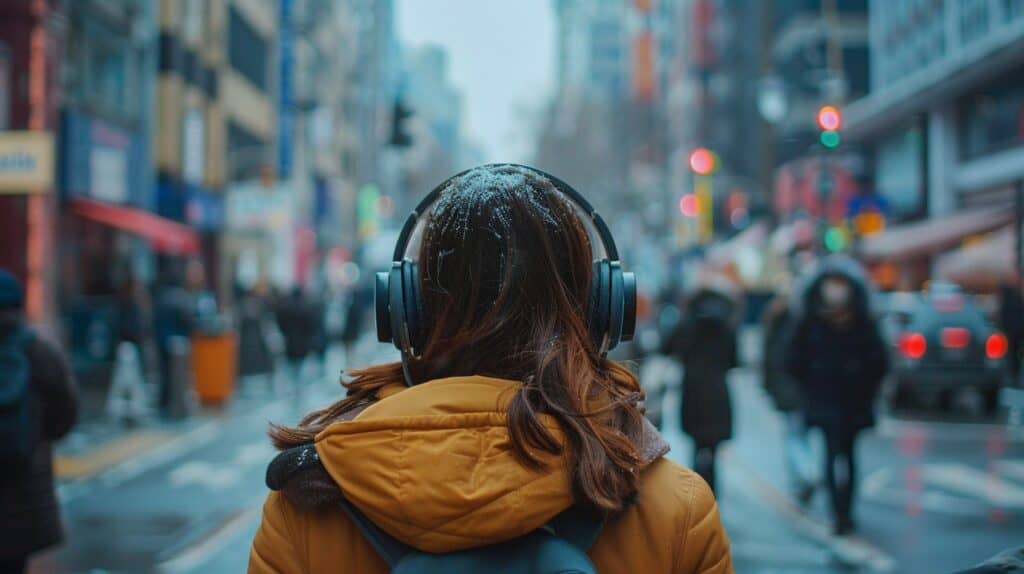
Protecting your ears from loud sounds is key to keeping them healthy. Loud noises can harm your hearing over time.
- Follow the 60/60 rule with headphones. This means you play music or games at no more than 60% volume for up to an hour. After that, give your ears a break.
- Wear ear muffs when you’re around very loud sounds like gunfire or heavy machinery. These fit over your entire ear and block out a lot of noise.
- Use protective earplugs at concerts or sporting events. Unlike regular plugs, these are designed to reduce sound levels evenly without muffling music or voices.
- Keep your distance from speakers at events or in clubs. The farther away you are, the less strain on your ears.
- Choose over-ear headphones instead of in-ear buds for daily use. They keep the sound a bit further from your eardrum and can be less damaging.
- Limit the time spent using devices that produce sound, like smartphones and tablets, especially with earphones in.
- Get regular check – ups for your ears to catch any hearing loss early.
- Lower the volume on TVs, radios, and car stereos. If others can hear it while wearing headphones, it’s too loud.
- Soundproof rooms where you listen to music or watch movies can also help by reducing the need for higher volumes.
- Give your ears quiet times during the day to recover from any noise exposure they’ve had.
FAQs About Whether Noise Cancelling Protects Hearing
What’s the big deal with noise-canceling headphones?
Noise-canceling headphones are like superheroes for your ears. They use a trick called phase cancellation to turn down the volume of the world around you, making sure loud noises don’t mess with your hearing.
Can wearing AirPods Pro really save my ears from loud noises?
Absolutely! The second-generation AirPods Pro come packed with active noise-canceling tech that can help shield your ears from harmful sounds, like the roar of a gunshot or the boom of fireworks.
Do those earplugs at concerts do anything or am I just missing out on the fun?
You’re not killing the vibe; you’re saving your eardrums! Earplugs cut down on decibels (dB) without muffling the music too much. Think of them as volume knobs for real life – turning down what’s too loud but still letting you enjoy the beat.
Is it true that all this quiet could actually be good for more than just my ears?
You bet! Cutting out unwanted noise reduces stress and can even help prevent heart diseases linked to constant loud environments. So, those ANC headphones might just be doing more for you than keeping tunes in and racket out.
How does Bluetooth technology fit into safer listening habits?
With gadgets like Bluetooth 5.3 in newer devices such as laptops and true-wireless earbuds, we get clearer sounds at lower volumes and less lag time between what we see and hear — meaning we keep our devices at safer volumes without missing a beat or word.
If everything goes silent, won’t I miss important stuff happening around me?
Good point! While blocking out distractions is great, situational awareness is key – knowing what’s going on around us keeps us safe in different scenarios. Some gear has special features allowing ambient sound through, so you can stay tuned into your surroundings while enjoying silence when it counts.
